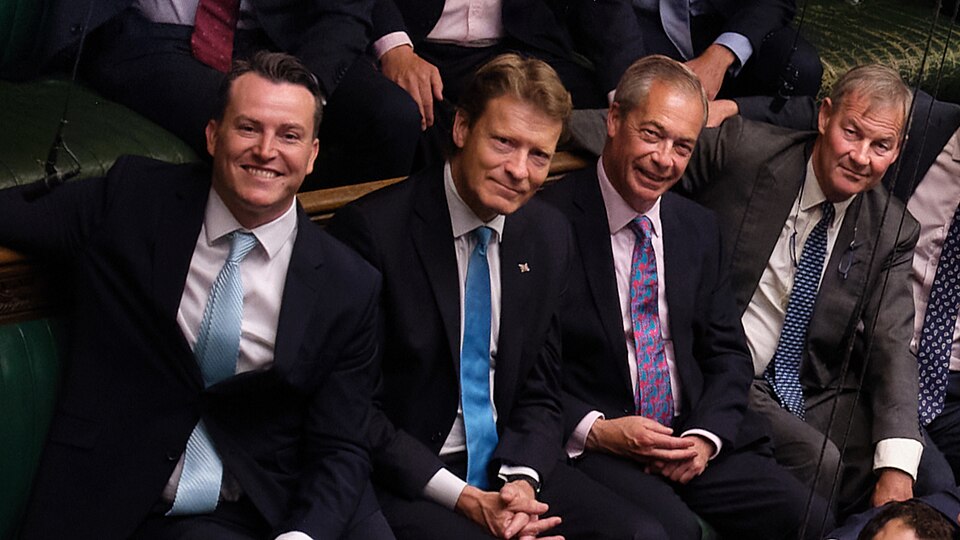
Britain’s populist Reform UK party, buoyed by fiery rhetoric against illegal immigration, the European Union, and the traditional political establishment, is now facing its first real test of
governing — managing local councils.
After winning nearly half of the local authorities contested in 2025, Reform officials are shifting from national slogans to everyday responsibilities: setting local taxes, organizing waste collection, and fixing potholes.
Led by veteran Brexit campaigner Nigel Farage, the party now has an opportunity to prove it can deliver on promises such as dismantling net-zero climate policies and cutting so-called “woke” initiatives. A strong performance could reshape British politics — and possibly position Farage as the country’s next prime minister.
From rhetoric to routine
Despite its surging popularity, Reform has little governing experience, holding just five of Parliament’s 650 seats. Local leader Mark Arnull, who heads West Northamptonshire Council, says his administration is a “test case” for how Reform might handle national power. His council serves about 429,000 residents, roughly 60 miles northwest of London.
In May’s local elections, Reform gained control of 10 out of 23 councils, now overseeing services for more than 8 million people across England. How it performs could determine whether its 10-point national poll lead translates into real momentum ahead of the next general election, due in 2029.
Farage has drawn inspiration from Donald Trump’s presidency and Elon Musk’s efficiency reforms, modeling a new “Department of Government Efficiency” (DOGE) to root out waste in public spending. Reform claims its version of DOGE — now rolled out in several local councils — will streamline everything from IT contracts to waste management.
At the national level, the party pledges to save £225 billion ($300 billion) over five years and cut taxes by £90 billion annually. Economists, however, have dismissed those projections as unrealistic, warning of potential market turmoil similar to that triggered by Liz Truss’s 2022 mini-budget.
Local realities
In practice, Reform’s efficiency drive has met financial limits. Arnull says his council will likely raise council tax by 5%, the legal maximum — a move at odds with the party’s national tax-cutting rhetoric. “It might not be popular,” he admits, “but it’s necessary to avoid serious financial trouble.”
West Northamptonshire Council has already scrapped its net-zero targets, calling them “undeliverable,” and renegotiated a software deal that will save £1 million over three years. Arnull also plans to improve efficiency in transport services for children with special needs, which currently cost £15.5 million a year.
Yet not all policies have gone smoothly. In July, a council meeting was disrupted by climate activists protesting the rollback of net-zero goals. Despite such controversies, Arnull insists his focus is on “fiscal responsibility” rather than ideology — even if that means adopting parts of the previous Conservative administration’s plans.
Some local figures, like independent councillor Lynn Taylor, have praised Reform’s cooperative tone. “They’re a breath of fresh air,” she said. Others remain skeptical. “I haven’t seen any changes at all,” said resident Elizabeth Snedker.
From protest to power
Reform’s rise has mirrored that of Europe’s right-wing populist parties such as France’s National Rallyand Germany’s AfD — rapid growth followed by growing pains once in office.
Since rebranding from the Brexit Party in 2021, Reform has struggled with accusations of racism (which it denies) and internal turmoil. A leaked video from the party’s Kent council this month showed heated disputes among members; five councillors were later expelled.
At September’s party conference, Farage acknowledged the obstacles Reform faces in local councils, saying he expects “similar barriers” if the party wins national power. He claimed Reform councils had already saved “hundreds of millions,” though he provided no details.
Recruiting experience
Farage admits that one of Reform’s biggest weaknesses is its lack of governing experience. To address that, he has welcomed a wave of defections from the Conservatives — including former party chairman Jake Berry and lawmaker Danny Kruger, who are now helping to shape Reform’s policy platform.
Berry said he joined because the Conservatives had become “more interested in preserving the status quo than delivering change.” Farage has defended bringing in ex-Tories, saying, “We need their experience to deliver real reform.”
Conservative leader Kemi Badenoch has downplayed the defections, urging patience as she tries to rebuild her party after its 2024 defeat. “Parties that wouldn’t normally be seen as serious options for government are gaining ground,” she said recently, accusing Reform of “promising free beer tomorrow.”
Labour leader Keir Starmer has also attacked Reform’s agenda, calling its proposed deportation plans “racist” and comparing its spending promises to the “unfunded fantasies” of the Truss era.
Farage, however, insists the establishment parties are resorting to “the same dirty tricks” used against him during the 2016 Brexit campaign.
Local voter Snedker remains unconvinced. “It’s easy to promise everything when you don’t have to deliver,” she said. “You can overpromise — and then fall flat.” Photo by © House of Commons, Wikimedia commons.




































